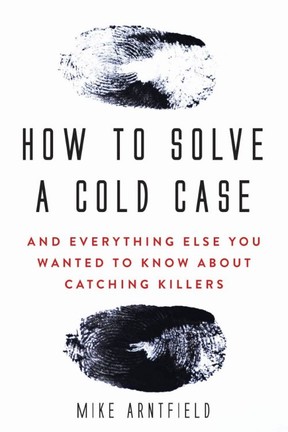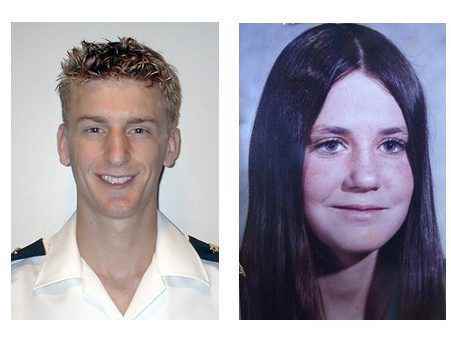
A former London police detective has penned a new book on unsolved homicides in which he argues police alone aren’t always best suited to investigate cold cases.
How To Solve A Cold Case, the latest book from best-selling author Michael Arntfield, a criminology professor at Western University, hits bookshelves on Tuesday.
The 352-page book published by HarperCollins highlights North America’s dismal homicide clearance rate, chronicles the history of cold case squads and provides insights on how to solve crimes by avoiding common pitfalls and recognizing patterns.
“I wanted this to be the most accurate and current book on the topic,” Arntfield said of cold-case probes.
Arntfield, who spent 15 years as a London police officer, makes the case that police working alone aren’t always the best equipped to solve cold cases.
He writes about the Homicide Victims’ Families Rights Act, a bipartisan bill in the US that, if passed, would give families of homicide victims the right to have their loved one’s case reviewed by outside agencies after going unsolved for three years.

The bill would “lighten the load (for police) and at the same time ensure that the case is receiving the maximum amount of attention and that the proper technologies are being applied,” Arntfield said.
One emerging practice Arntfield singles out as promising is investigative genetic genealogy, the use of genetic information from companies like GEDMatch and FamilyTreeDNA to identify suspects or victims in crimes.
“It doesn’t lead you to the person, but it will point you to, typically, a bloodline and you can start digging from there,” he said of the practice. “So, you just narrowed the haystack by hundreds of millions of people.”
Arntfield draws on two Southwestern Ontario death investigations to illustrate the potential shortcomings of police investigations.
The first is the March 16, 1974, death of Sarnia teenager Karen Caughlin, whose body was discovered in a shallow ditch off what is now Plowing Match Road near Petrolia.
Caughlin, 14, was last seen alive by friends who dropped her off a few blocks from a friend’s Brock Street home after a night of roller skating at the former Rose Gardens in Point Edward.
Investigators ruled the case a homicide, but released few other details at the time, leading residents in Lambton County to fear Caughlin’s killer might still have been living among them. It wasn’t until 2017 that the OPP revealed they believed Caughlin likely was the victim of a hit-and-run.
Arntfield questions the OPP’s decision to withhold that information from the public or other police forces looking for potential links between Caughlin’s death and other unsolved killings of teenage girls in Southwestern Ontario.

“For obvious reasons, it might have been useful for the public to know this information in 1974, when damage to the car might have been readily visible and the driver locatable,” he writes. “Why did police choose not to disclose this information in the initial stages of their investigation? . . . For whatever reason, the police thing to lie by omission.”
There’s a “minimal chance” the case will ever be solved, Arntfield said. “The public has never been armed with the information they need to provide meaningful tips to police.”
Arntfield also delves into the death of Chatham-Kent native Joe Grozelle, 21, who went missing from his dorm at the Royal Military College in Kingston on Oct. 22, 2003. His body was found three weeks later in a river near campus.
Investigations by the military police, the OPP and a coroner’s inquest determined Grozelle died by suicide or an accident. But the Cold Case Society at Western – a collaboration between students and academics to research unsolved crimes – concluded Grozelle likely had been killed.
“Basically, we wrote up a report saying this overwhelmingly points to foul play,” said Arntfield, who founded the Western-based think-tank in 2011.
The group’s report was credited with getting the chief coroner to reopen the case as a criminal investigation, Arntfield said.
“The case is open and active now. The family just met with the lead detective,” he said.
Although Arntfield has now written five books on cold cases, he doesn’t claim to have all the answers and even opened his latest with a Plato quote: “I am the wisest man alive, for I know one thing, and that is that I know nothing.”
“We all don’t know just how much we don’t know,” Arntfield said. “The underlying theme of the book is the vast majority of what people think they understand, including seasoned statisticians, what they think they know about homicides is really off.”
